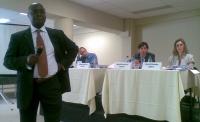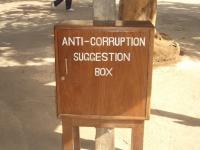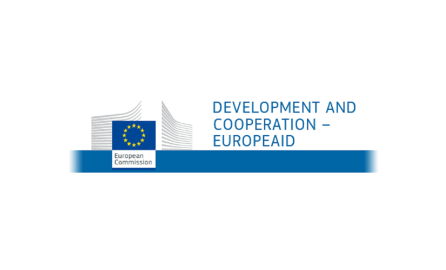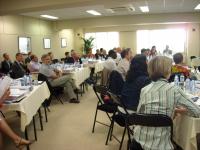Understanding and Assessing Corruption in Developing Countries Navigating and managing corruption.
From the infrequently paid teacher who accepts gifts of food and money from pupils to the political leader stashing millions in foreign banks, corruption takes many forms in developing countries. For development workers in the field, understanding the society and being able to address and analyse governance structures and limitations is essential to navigating and managing corruption in day-to-day work.
At a recent week of seminars at EuropeaAid headquarters in Brussels, representatives from European Commission delegations across the world and external experts gathered to discuss how to better equip themselves in tackling corruption.
One of the initial challenges for development workers, who in many instances do not come from the country in which they are working, is understanding the motivations and sources of corruption in their assignment country. To understand graft, it is necessary to have an understanding of the culture and society in which you operate, according to Muzong Kodi, an associate fellow from the UK's Chatham House and a specialist in anti-corruption.
"When a person leaves office and has not accumulated wealth, that person is seen as a deviant by the same people who are victims of corrupt activity in the country," said Mr Kodi. "The person will be derided. Everybody will laugh at him as being foolish and not having taken advantage of the office." You can see and download Mr Kodi's informative 20 minute presentation in full, here.
In many countries, people see public service as a public resource to be used and abused by those who have the power and authority to do so.
This cultural awareness is essential knowledge that can be drawn upon in the political economy approach to assessing corruption, as explained by Jean Bossuyt from the European Centre for Development Policy Management (ECDPM). Mr Bossuyt's lively 15 minute presentation can be seen in full and downloaded, here.
Bossuyt encourages development workers operating in the field to use existing studies available, combined with their own experiences and assessments, to draw up an analytical framework of governance. This framework can then be used to map power structures and identify lines of accountability, with thought-provoking results.
For further guidance on how to analyse and address governance in sector operations, read the EuropeAid reference document "Analysing and Addressing Governance in Sector Operations".
 Some related links include the UN's Convention Against Corruption, and information about the UN's International Anti-Corruption Day.
Some related links include the UN's Convention Against Corruption, and information about the UN's International Anti-Corruption Day.
Further details about the Commission's efforts against corruption are available for EC staff on the EuropeAid intranet or by clicking here.
|
Chinua Achebe, the celebrated Nigerian writer perhaps summed up his understanding of corruption in his 1966 satirical novel, "A Man of the People": "Tell them that this man had used his position to enrich himself," he wrote, referring to a corrupt official. "And they would ask you - as my father did - if you thought a sensible man would spit out the juicy morsel that good fortune placed in his mouth." |







Log in with your EU Login account to post or comment on the platform.